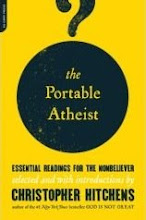This is a provocative, but important, question to ask. I often hear people say that, even if there is no God, religion does not hurt anybody…therefore, atheists’ objections to religious dogma are pointless. My usual reply to this is to list atrocities that have been committed in the name of religions, and their respective Gods, throughout the millennia.
I think that recognizing the horrendous acts that the “godly” have committed over the years based on the tenets of their respective dogmas is important—especially when discussing the dangers of faith. However, because very few people today have experienced those atrocities firsthand, I think the point often gets lost.
Here are several tangible examples of the dangers of religion on both an individual and social level:
1. Faith and Federal Policy: Several recent polls show that 40-60% of Americans believe Jesus Christ will return at sometime within the next fifty years. This figure is absolutely astonishing. What this means is that there are 200 million of our neighbors and fellow citizens who think that the apocalypse will occur at some point within the next fifty years. This statistic should alarm any person who is even remotely aware of the potential harm this mindset can cause as we, as a nation, are confronted with very complicated modern problems.
How do we tackle problems like global warming that require long-term solutions when half of us do not even believe there will be anything to save? We simply cannot create efficient and durable environmental policies when most of us are expecting the world to end. Perhaps the problem with this way of thinking is best illustrated by Ronald Reagan’s Secretary of the Interior, James G. Watt, who said “We don’t have to protect the environment, the Second Coming is at hand.”
This type of thinking also pervades our foreign policy. It is virtually impossible to craft effective long-term foreign policies with countries in the Middle East and Asia when those people are considered, by any biblical definition, to be heretics, non-believers and blasphemers. Religious dogma is clearly incompatible and incredibly dangerous in a global society where we must learn to put aside our differences and work diplomatically toward solutions.
2.Seeking Counsel in Clergyman: In my experience, this is especially prevalent within the African-American Christian community. Black churches across America teach their parishioners that when they experience an incredibly tragic event, don’t go to a therapist, but seek refuse in God—which usually means talking to the clergymen. The problem with this is that most church leaders are ill-equipped to counsel someone through complex emotional and personal issues. It is undeniable that attempting to help someone through an issue from the perspective of first century superstition and scripture is incredibly limited and potentially dangerous. I know someone who found several family members brutally murdered in their home, yet instead of hiring licensed therapist, this person pushed more deeply into church. They would often say, “God will get me through this.” Well it has been four years and they are still waiting on God.
Even in less extreme situations that confront most people like divorce or financial woes, there seems to be an ardent refusal among conservative Christians in our community to utilize the resources that exist outside the church for appropriately managing these situations.
3.Faith Fixes Everything: The fundamental problem with a belief in a supreme, omnipotent, omnipresent being is that this mindset completely undermines the responsibility that we , as individuals, have to take care of ourselves by making responsible decisions. How is one supposed to take full personal responsibility in a situation when they believe that God has already figured out exactly what’s going to happen?
People who honestly believe that ‘God will make a way can make potentially disastrous decisions without considering the full consequences—because they believe ‘the power of prayer’ will intercede to create the outcome that they desire. Applying this mindset to life’s important decisions is like jumping off a cliff and thinking that God will put out a safety net ‘just in time.’
In closing, it has become increasingly obvious to me that there are modern issues we are dealing with that will require enormous cooperation and foresight, and religious dogma is clearly an impediment to these goals. In addition to affecting our federal policies, religious dogma is destructive at the personal level because it offers people false hope in dealing with personal issues and it encourages them that they can do whatever they want to because God will ‘make a way’. I can only hope we realize how dangerous religious dogma is before it is too late.
.jpg)


